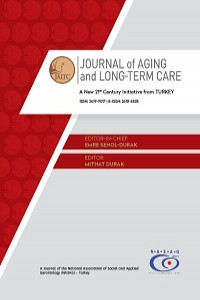A game-based health program for improving functional health and social engagement in long-term care residents
A game-based health program for improving functional health and social engagement in long-term care residents
After entering long-term care (LTC), many residents experience continued declines in functional status, activities of daily living (ADLs), and increased fall risk. Therefore, there is a significant need for activities capable of improving/maintaining functional status, decreasing social isolation, and increasing residents’ quality of life. Bingocize®, a strategic combination of exercise, education, and the game of bingo, is an innovative program shown to fulfill this need. The purpose of this article is to describe an on-going United States (U.S.) Center for Medicare and Medicaid Civil Money Penalty (CMP) grant-funded project to implement Bingocize® in multiple LTC facilities. As part of this project, local universities and their faculty and students from across the state help LTC staff administer the program. Over 800 trained LTC staff and students, and most importantly, over 1300 residents have successfully participated so far. Bingocize® can be a positive addition to LTC activities because the program helps improve/maintain functional status and social engagement. Applying for CMP funding either individually, or in partnership with a local university, is a pragmatic way for LTC facilities to access and sustain Bingocize® and other evidence-based programs.
Keywords:
Exercise, quality of life, range of motion, intergenerational, Center for Medicare and Medicaid, therapy physical activity, social engagement,
___
- Crandall, K. J., Fairman, C., & Anderson, J. (2015). Functional performance in older adults after a combination multicomponent exercise program and bingo game. International Journal of Exercise Science, 8(1), 38-48.
- Crandall, K. J., & Steenbergen, K. I. (2015). Older adults’ functional performance and health knowledge after a combination exercise, health education, and bingo game. Gerontology and Geriatric Medicine, 1-7.
- Dipietro, L., Campbell, W. W., Buchner, D. M., Erickson, K. I., Powell, K. E., Bloodgood, B.,... VauxBjerke, A. (2019). Physical activity, injurious falls, and physical function in aging: An umbrella review. Medicine and Science in Sports and Exercise, 51(6), 1303-1313.
- Dispennette, A. K., Schafer, M. A., Shake, M., Clark, B., Macy, G. B., Vanover, S., & Crandall, K. J. (2019). Effects of a game-centered health promotion program on fall risk, health knowledge, and quality of life in community-dwelling older adults. International Journal of Exercise Science, 12(4), 1149-1160.
- Falls, D., Shake, M., Norris, E., Arnett, S., Taylor, J., & Crandall, K. J. (2018). Bingocize®: Utilizing a mobile application to improve gait in community-dwelling older adults. American Journal of Recreation Therapy, 17(2), 9-19.
- French, M., Tade, M., Neils-Strunjas, J., Crandall, K. J., Glascock, A., McAlpin, K., & Schaefer, S. (2016). A qualitative analysis of persons with dementia & their experience with the game Bingocize®. American Speech-Language-Hearing Association, Philadelphia, PA; November 2016.
- Neils-Strunjas, J., Crandall, K. J., Shackelford, J., Dispennette, K., Stevens, L. R., & Glascock, A. (2018). Students report more positive attitudes toward older adults following an interprofessional service-learning course. Gerontology and Geriatrics Education, 12, 1-11.
- Shake, M. C., Crandall, K. J., Mathews, R. P., Falls, D. G., & Dispennette, A. K. (2018). Efficacy of Bingocize®: A game-centered mobile application to improve physical and cognitive performance in older adults. Games for Health Journal, 7(4), 253-261.
- Stevens, L. (2019). Observation and self-report of fun and social engagement of nursing home residents during Bingocize® (Master’s thesis), Western Kentucky University, 2019.
- Yu, J. & Kirk, M. (2008). Measurement of empathy in nursing research: Systematic review. Journal of Advanced Nursing, 64(5), 440-454.
- ISSN: 2619-9017
- Başlangıç: 2017
- Yayıncı: Ulusal Sosyal ve Uygulamalı Gerontoloji Derneği
